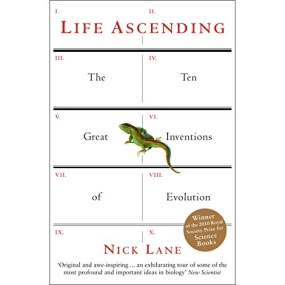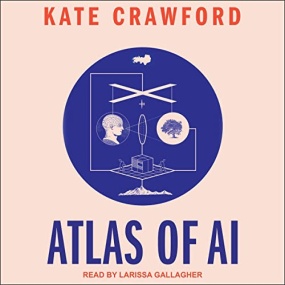
浅薄:互联网如何毒化了我们的大脑》在我们跟计算机越来越密不可分的过程中,我们越来越多的人生体验通过电脑屏幕上闪烁摇曳、虚无缥缈的符号完成,最大的危险就是我们即将开始丧失我们的人性,牺牲人之所以区别于机器的本质属性。——尼古拉斯•卡尔“谷歌在把我们变傻吗?”当尼古拉斯•卡尔在发表于《大西洋月刊》上赫赫有名的那篇封面文章中提出这个问题的时候,他就开启了人们热切渴望的期盼源泉,让人急于弄清楚互联网是在如何改变我们的。卡尔同时也明确回答了我们这个时代面临的一个重要问题:在我们尽情享受互联网慷慨施舍的过程中,我们正在牺牲深度阅读和深度思考的能力吗?
现在,卡尔把他的论证扩展到最具说服力的探索研究上,针对互联网导致的智力后果和文化后果,他阐述了迄今未见公开发表的观点结论。娓娓道来,叙述得引人入胜。
卡尔让人心悦诚服地认识到,所有的信息技术都会带来一种智能伦理。印刷图书如何让我们进入聚精会神的状态,从而促进深度思维和创造性思维的发展。相比之下,互联网鼓励我们蜻蜓点水般地从多种信息来源中广泛采集碎片化的信息,其伦理规范就是工业主义,这是一套速度至上、效率至上的伦理,也是一套产量最大化、消费最大化的伦理——如此说来,互联网正在按照自己的面目改造我们。我们变得对扫描和略读越来越得心应手,但是,我们正在丧失的却是专注能力、沉思能力和反省能力。
在《浅薄》一书中,有智能技术的发展历史,有大众科学的普及知识,有文化批判的真知灼见,全书处处闪耀着令人难忘的智慧之光,这些内容恰似对我们现代人的心智状态所做的全面而深远的拷问。
这本书必将永远改变我们对传媒和大脑的思考方式。
“Is Google making us stupid?” When Nicholas Carr posed that question, in a celebrated Atlantic Monthly cover story, he tapped into a well of anxiety about how the Internet is changing us. He also crystallized one of the most important debates of our time: As we enjoy the Net’s bounties, are we sacrificing our ability to read and think deeply?
Now, Carr expands his argument into the most compelling exploration of the Internet’s intellectual and cultural consequences yet published. As he describes how human thought has been shaped through the centuries by “tools of the mind”—from the alphabet to maps, to the printing press, the clock, and the computer—Carr interweaves a fascinating account of recent discoveries in neuroscience by such pioneers as Michael Merzenich and Eric Kandel. Our brains, the historical and scientific evidence reveals, change in response to our experiences. The technologies we use to find, store, and share information can literally reroute our neural pathways.
Building on the insights of thinkers from Plato to McLuhan, Carr makes a convincing case that every information technology carries an intellectual ethic—a set of assumptions about the nature of knowledge and intelligence. He explains how the printed book served to focus our attention, promoting deep and creative thought. In stark contrast, the Internet encourages the rapid, distracted sampling of small bits of information from many sources. Its ethic is that of the industrialist, an ethic of speed and efficiency, of optimized production and consumption—and now the Net is remaking us in its own image. We are becoming ever more adept at scanning and skimming, but what we are losing is our capacity for concentration, contemplation, and reflection.
Part intellectual history, part popular science, and part cultural criticism, The Shallows sparkles with memorable vignettes—Friedrich Nietzsche wrestling with a typewriter, Sigmund Freud dissecting the brains of sea creatures, Nathaniel Hawthorne contemplating the thunderous approach of a steam locomotive—even as it plumbs profound questions about the state of our modern psyche. This is a book that will forever alter the way we think about media and our minds.
文本下载

下载信息已被隐藏,请在下方输入 验证码 查看隐藏内容
关注微信公众号,回复“验证码”,获取验证码。 在微信里搜索“力哥爱阅读”或扫码关注。
⚠️ 取关用户无法收到验证码或任何消息,无需再次关注 ⚠️






